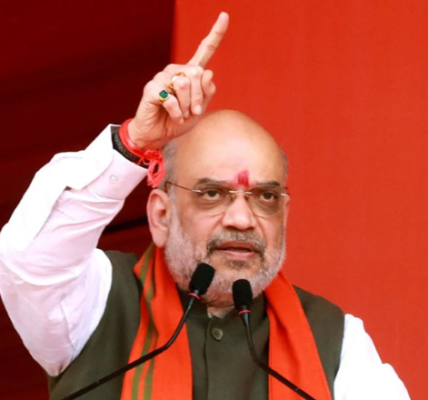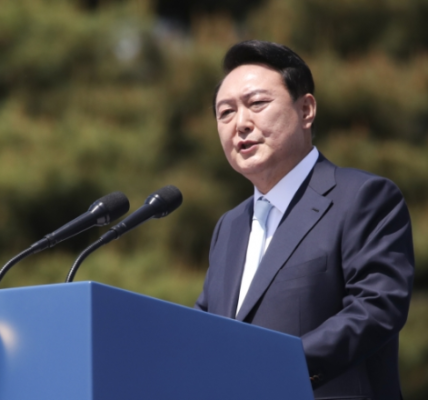
Keir Rodney Starmer is a British politician who has served as the Prime Minister of the United Kingdom since 2024 and as the Leader of the Labour Party since 2020. His political career, marked by resilience and reform, culminated in a decisive victory in the 2024 general election, ending 14 years of Conservative governance. Prior to his political rise, Starmer was a distinguished lawyer and Director of Public Prosecutions (DPP) from 2008 to 2013, earning national recognition for his work on human rights and high-profile legal cases.
Early Life and Education
Keir Starmer was born on 2 September 1962 in Southwark, London, and grew up in Oxted, Surrey, as the second of four children in a working-class family. His mother, a nurse, and his father, a toolmaker, were both supporters of the Labour Party, and it is speculated that Starmer was named after the party’s founder, Keir Hardie. He attended Reigate Grammar School, where he excelled academically and earned A-levels in mathematics, music, and physics. Starmer then went on to study Law at the University of Leeds, where he graduated with first-class honors in 1985. His academic journey continued at Oxford University, where he earned a Bachelor of Civil Law degree from St Edmund Hall in 1986.
Legal Career
Starmer’s legal career began in earnest after he was called to the Bar in 1987, joining Doughty Street Chambers where he specialized in human rights law. He quickly made a name for himself with his work on cases involving civil liberties, including representing the McLibel defendants in their landmark case against McDonald’s. His work in defending individual rights and his role in complex legal cases brought him widespread recognition, and in 2002, he was appointed Queen’s Counsel (QC), cementing his reputation as a leading barrister.
In 2008, Starmer was appointed Director of Public Prosecutions (DPP), where he implemented key reforms to the Crown Prosecution Service (CPS), including initiatives to improve transparency and efficiency. His tenure was marked by landmark cases, notably the successful prosecution of the killers of Stephen Lawrence, a case that profoundly influenced his future political trajectory. In recognition of his service, Starmer was knighted in 2014 for his contributions to law and criminal justice.
Political Career
Starmer entered politics in 2015 when he was elected as the Member of Parliament (MP) for Holborn and St Pancras, succeeding Frank Dobson. He gained prominence early on for his vocal opposition to Brexit, becoming a key figure in the Remain campaign during the 2016 EU referendum. Following the referendum, Starmer advocated for a second referendum, positioning himself as a staunch defender of European integration and human rights.
Initially joining Jeremy Corbyn’s Shadow Cabinet as Shadow Home Office Minister in 2015, Starmer resigned in 2016, citing differences with Corbyn’s leadership, particularly over the issue of Brexit. After Labour’s disappointing performance in the 2019 general election, Starmer was appointed Shadow Secretary of State for Exiting the European Union, where he played a pivotal role in scrutinizing the government’s Brexit strategy and championing a second referendum.
Leadership of the Labour Party
In 2020, following Jeremy Corbyn’s resignation after Labour’s defeat in the general election, Starmer ran for the leadership of the Labour Party. He won the leadership contest with 56.2% of the vote, presenting himself as a figure who could unite the party and steer it back to the political center. Starmer worked to restore Labour’s credibility, particularly by tackling antisemitism within the party, and repositioned the party as a more moderate, mainstream left-wing force.
Under Starmer’s leadership, the Labour Party gained significant traction in local elections, particularly in 2023 and 2024, culminating in a landslide victory in the 2024 general election. This marked the end of over a decade of Conservative rule and brought Starmer to power as Prime Minister. His leadership focused on major reforms to the criminal justice system, public sector workers’ rights, and addressing civil unrest. His government introduced new initiatives, such as the Border Security Command and the National Violent Disorder Programme, reflecting his commitment to national security and social order.
Prime Ministership
Starmer assumed office as Prime Minister in 2024, following Labour’s historic victory. His government quickly moved to address pressing issues, such as prison overcrowding and resolving public-sector disputes. Starmer has also prioritized maintaining strong international relations, particularly supporting allies like Ukraine and Israel amid ongoing global conflicts.
Despite Labour’s impressive electoral success, Starmer’s government has the smallest electoral vote share of any majority government in British history, a factor that has sparked both praise and criticism. Nonetheless, his leadership represents a significant shift in British politics, helping to stabilize a country still reeling from the polarizing effects of Brexit and years of Conservative governance.
Political Positions
- Evolution of Political Positions: Starmer’s political stance has shifted since his 2020 leadership election, with his initial left-leaning platform—including pledges like raising income tax on the top 5%, abolishing university tuition fees, and nationalizing public services—later modified or abandoned due to economic realities.
- Criticism of Policy Shifts: Critics argue that Starmer has shifted Labour towards the center for electoral viability, likening it to Tony Blair’s New Labour. Others believe his policies lack clear ideological direction, while some see him adhering to a left-wing vision focused on anti-neoliberalism.
- Key Elements of Starmerism: In a 2023 interview, Starmer outlined two central components of his ideology:
- A critique of the centralised British state and the proposal for governance based on five key missions, guiding policy over two terms.
- Advocacy for “modern supply-side economics,” which includes increasing workforce participation, reducing inequality, and addressing climate change as a key opportunity.
- Commitment to Public Sector Reform: Starmer emphasizes localism and devolution, supporting constitutional reforms like abolishing the House of Lords and replacing it with a directly-elected Assembly of the Regions and Nations. His 2024 manifesto includes removing hereditary peers and promoting a more representative body.
- Climate and Energy Policies: Starmer has committed to decarbonizing the UK economy, aiming for a fossil-free national electricity grid by 2030. He views climate change as both a critical obligation and a significant opportunity for the country’s future.
- Support for LGBT Rights: Starmer advocates for stronger protections against hate crimes targeting the LGBT community, modernizing the gender recognition framework, and implementing a trans-inclusive conversion therapy ban.
- Tougher Stance on Crime: Starmer has called for longer sentences for rape and sexual violence and has committed to halving the rates of violence against women and girls. He also supports comprehensive police reforms and better domestic violence victim support.
- Immigration Policy: Starmer has expressed intentions to reduce high levels of legal immigration, focusing on improving training and skills for British workers to address labor shortages.
- Starmerism: Though debated, Starmer’s evolving political philosophy is often referred to as “Starmerism,” characterized by a focus on economic reform, social justice, and a more inclusive, democratic political system.
Personal Life
Keir Starmer is married to Victoria Starmer, a solicitor, and the couple has two children. Known for his calm demeanor and pragmatic approach, Starmer has earned respect across political divides, though his leadership style has not been without controversy. His legacy will likely be shaped by his handling of a turbulent political era, his efforts to unite the Labour Party, and his leadership during the challenging post-Brexit period.
Starmer’s legal career, political rise, and leadership approach have solidified him as one of the most influential figures in contemporary British politics. His ability to navigate the complexities of national and international issues, while steering the Labour Party towards a more centrist, pragmatic path, has defined his tenure as Prime Minister.
Awards and Honours
Queen’s Counsel (KC): In 2002, Keir Starmer was appointed Queen’s Counsel (QC), a prestigious recognition for his legal expertise.
Sydney Elland Goldsmith Award (2005): Starmer received this award from the Bar Council for his exceptional contribution to pro bono work, particularly in challenging the death penalty in Uganda, Kenya, Malawi, and the Caribbean.
Honorary Fellowship (2022): In recognition of his academic and professional achievements, Starmer was elected an Honorary Fellow of St Edmund Hall, Oxford, in 2022.
Knight Commander of the Order of the Bath (KCB): Starmer was knighted in the 2014 New Year Honours for his services to law and criminal justice. This honor allowed him to wear the Bath neck decoration on formal occasions, such as Remembrance Sunday, and the breast star at formal dinners when hosting overseas dignitaries.





